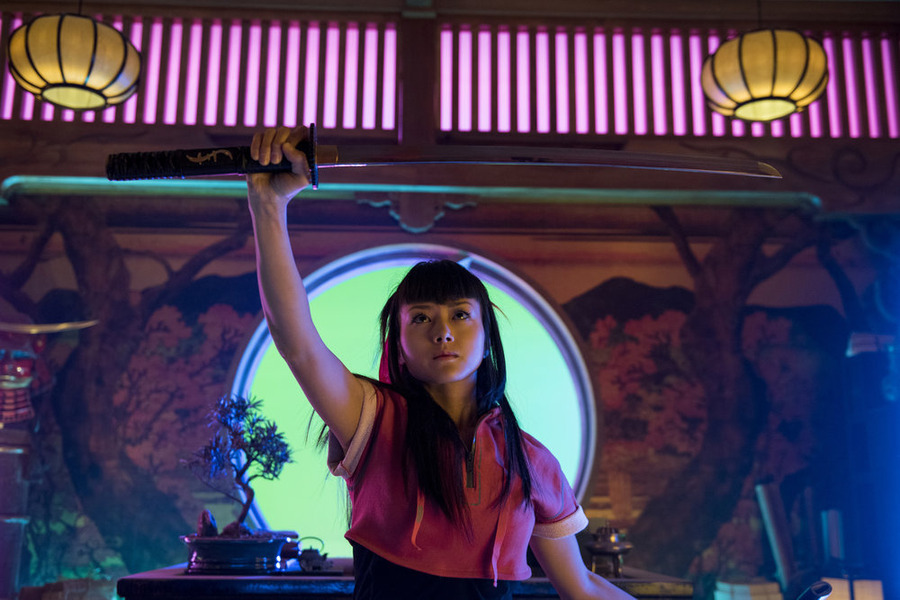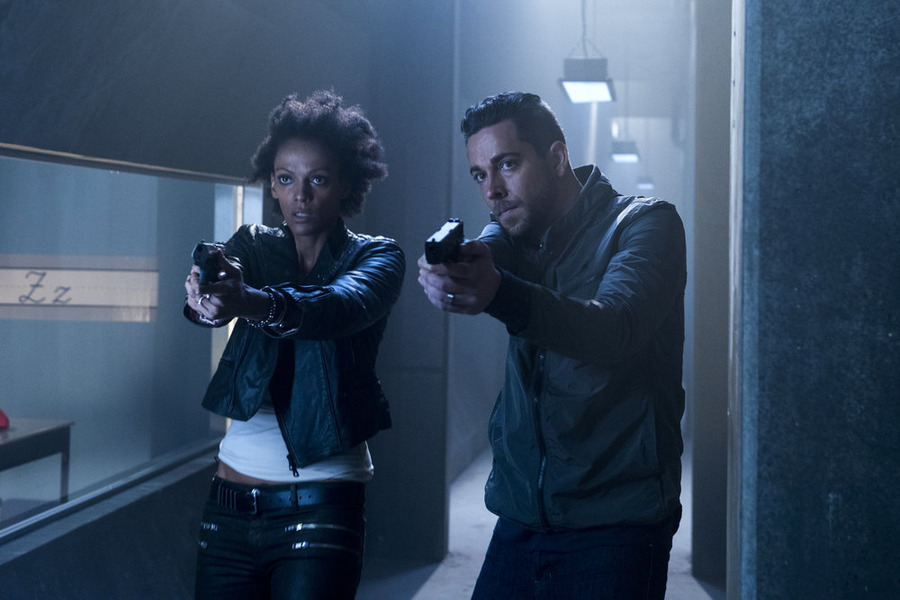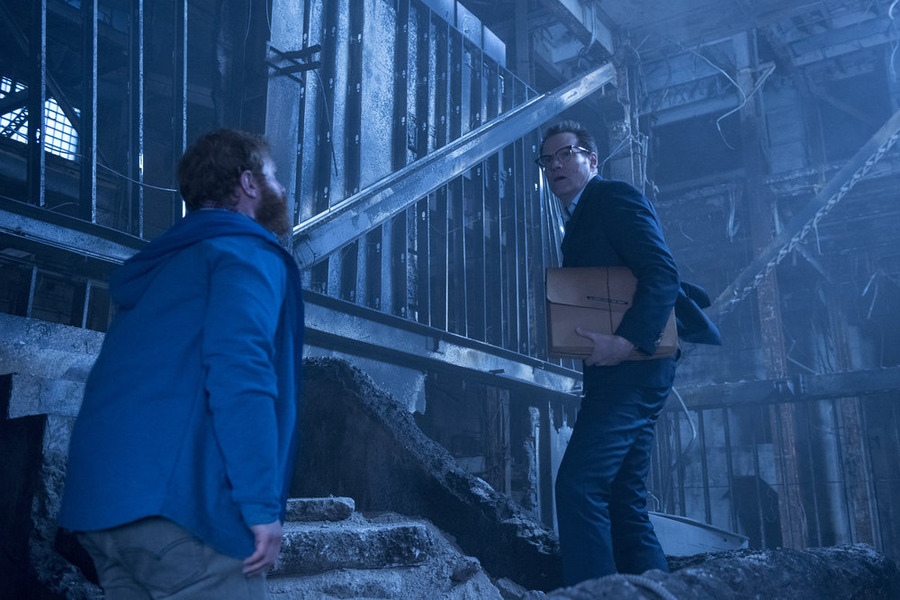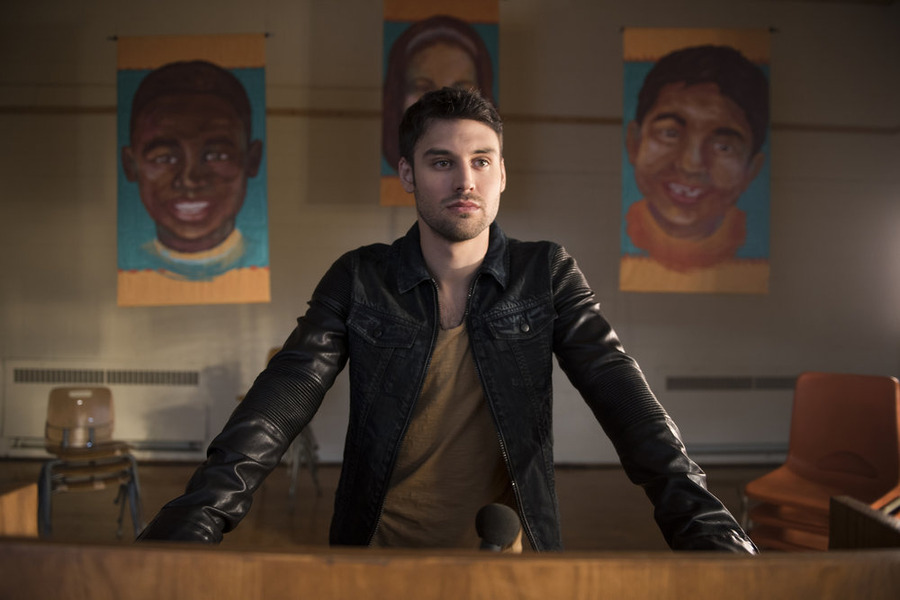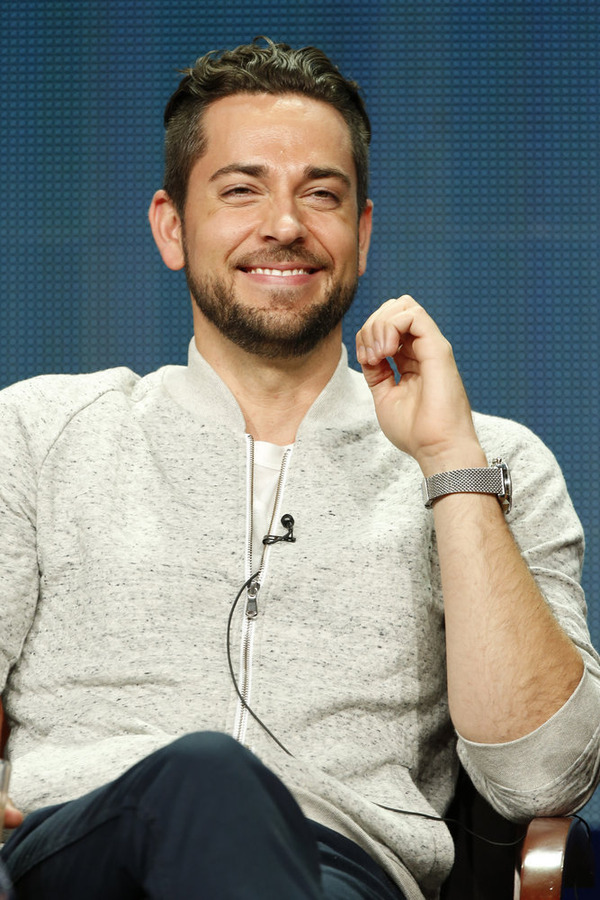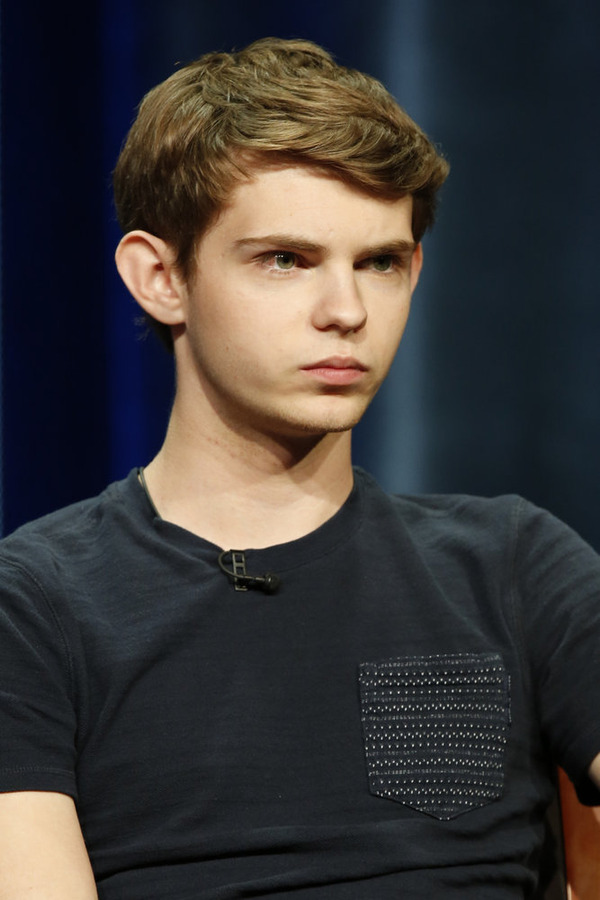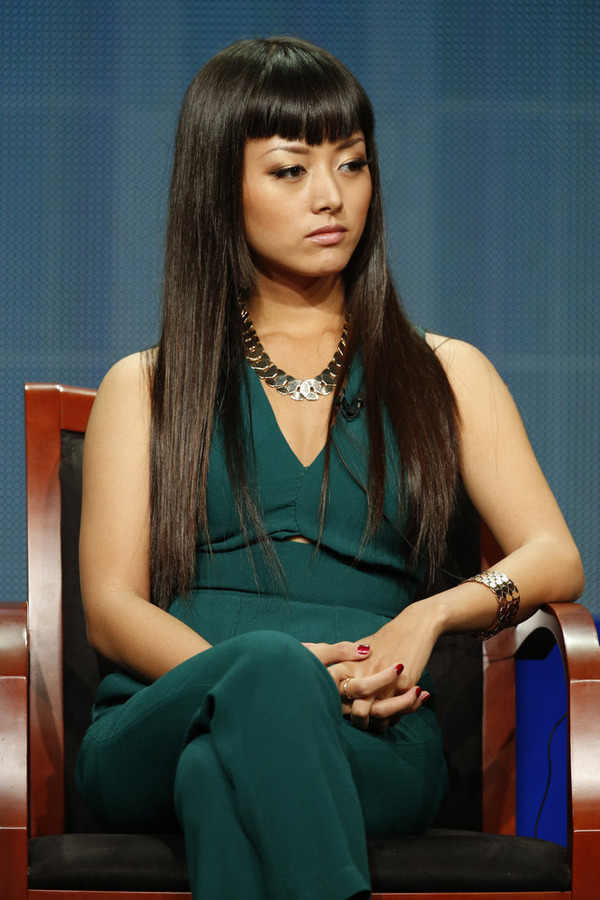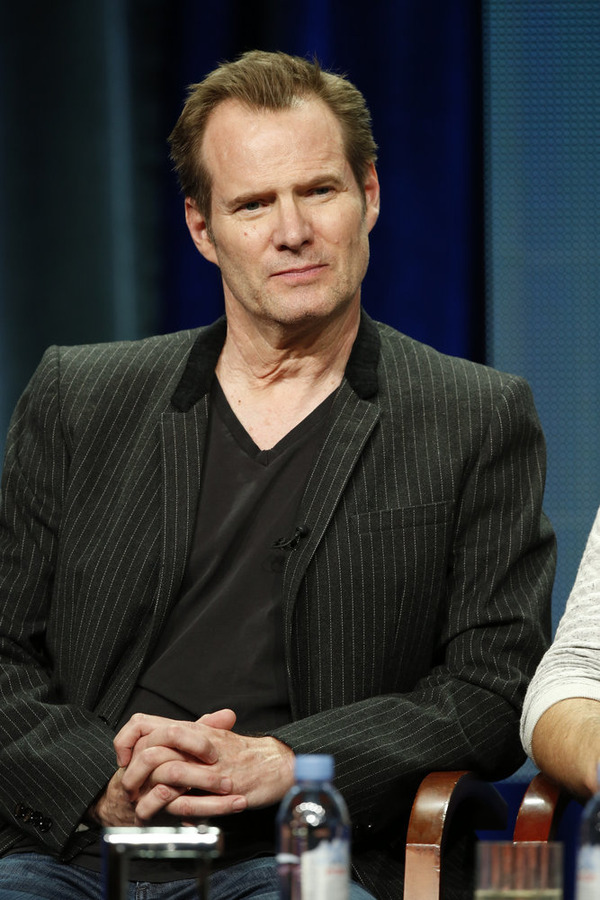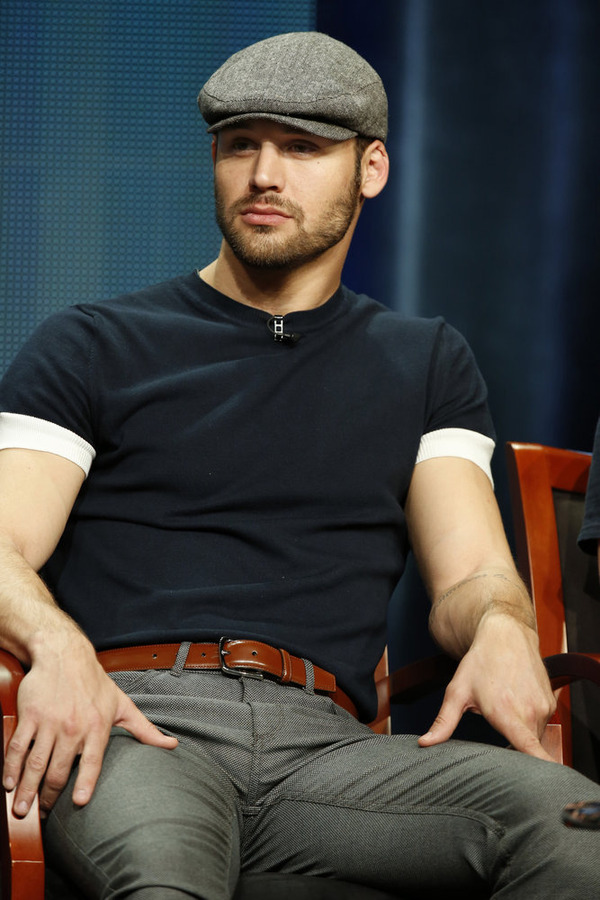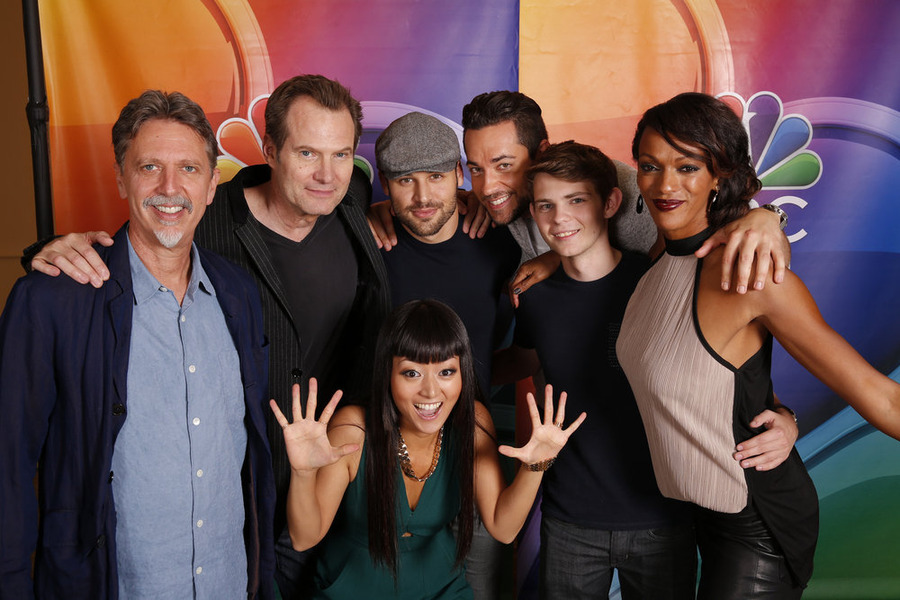
Heroes Reborn premieres September 24th at 8-10 p.m./ET on NBC. The original Heroes was a star that burned bright and fast. At NBC’s summer Television Critics Association presentation, OHSOGRAY was present as producer/creator Tim Kring, joined by Zachary Levi, Jack Coleman, Judi Shekoni, Kiki Sukezane, Ryan Guzman and Robbie Kay discussed the show’s direction and what fans can look forward to.
Why didn’t you bring back […] Milo? Where’s Hayden?
Tim Kring: Well, listen, some of the people some of the actors did not have the availability because they were involved with other things. So that’s something that was just completely out of our control. But the truth about how and when we approached different actors was really about what the story dictated. So if the story dictated that we wanted to see a certain character, we reached out to them. And some of those didn’t happen until we were well into the writers’ room, and one of the writers would say, “Well, wouldn’t it be great if, when we open up the door, it was actually Matt Parkman, Greg Grunberg’s character, that was standing there?” So we’d reach out to, you know, Greg and ask if he could join. So the story was really the thing that dictated who would come back. And the show was always designed to be very elastic in its premise. It was a show about an indeterminate number of people around the world who have powers. I always thought it was a show that could repopulate itself. And I wanted to make it something that was easy for brand new viewers to watch for the first time. And so, for them, falling in love with new characters and caring about new characters is just as important as having these former cast in the show.
[For Tim Kring] When “Heroes” debuted, you were singular in the network landscape. Now that you’re coming back, you’ve got “Agents of S.H.I.E.L.D.,” which has the Inhumans and S.H.I.E.L.D. trying to police the Inhumans. On Netflix you’ve got “Sense8.” There’s a couple of other shows about the next leap in human evolution being fought by…
Tim Kring: Right.
…the previous leap in human evolution. Do you feel like a proud father? Do you feel like you’re competing? Do you feel like “Heroes” is different enough from these other things that that’s not relevant?
Tim Kring: You always hope that what you’re doing is different and it’s driven by your own creativity. I was not I never made I was never shy to talk about the fact that I was not a comic book geek and I didn’t really come from that world. So I always approached it as a show about characters. It was a show that was called “Heroes” and not “Superpowers” or “Powers,” you know. So it was always meant to be about the characters themselves. And by going back to some of those original basic base note ideas of what the show was originally, it almost doesn’t matter what’s happened in the world around us. We’re telling that story that I think continues to be something that’s fascinating of people dealing with almost primal questions of what’s happening to me? Why how am I connected? What does it all mean? Those are the real those are the real questions that are brought up in the show. So how it connects to other things out there, we can’t really concern ourselves that much with it.
[For the producers] Is this [show] closer to your vision of what you had hoped to do with the show originally…?
Tim Kring: No, that’s interesting. I think, ironically, it is actually closer to the original idea. Again, I was only I was really most interested in the origin stories, and what that sort of dictated was that once you told once you answered those big questions of those primal, existential questions of what’s happening to me and why and how am I connected and what’s my purpose, when you keep going with the story, you have to answer those, obviously, because the audience will get very mad if you don’t answer those basic questions eventually. And then you have to replace those questions with other questions, and those are usually plot questions. And plot questions can be fascinating, of course. But they’re never quite as satisfying as those primal questions. So yes, getting to repopulate in this way is, I think, closer to the original sort of idea of the show.
I read that Hayden Panettiere’s character is dead in the narrative of this series. Is that correct?
Tim Kring: Yes. And then we it’s sort of been already in a trailer where we’ve said that.
If the premise of the show was “Save the cheerleader, save the world,” are we seeing in “Heroes Reborn” the results of them failing, or is that sort of we got past that in four seasons?
Tim Kring: That was sort of past that in that story. In the real world of the story, she died a year prior to our story starting. So yeah, that sort of gets into some of the mythology that’s attached to the original show that we’re trying to Jack Coleman’s character gets to uncover some of that mythology for us. So any new viewer who watches the show will not have to feel that they had to have watched four seasons of the show. They’ll get to explore that backstory through him and his character, and it will come out naturally.
[For Tim Kring] In the intervening years, have you reflected on what possibly went wrong in the storytelling of [the original] show to cause its decline and how you avoid those pitfalls going forward now?
Tim Kring: Well, I think the biggest pitfall for us always was the amount of story that we had to tell in a year. Our first season, we our order was for 23 the first year. The second year our order was 26. The third year our order was 25. Our first season of the show, the original show, took us 14 months to make one year of television. We were facing a kind of mathematical difficulty, an uphill battle from the beginning. By being able to do 13 episodes, the contract that we are making with the audience is that it is 13 episodes. That’s what you’re going to get with “Heroes Reborn,” is this beginning and a middle and an end, which will allow us to do a very aggressive kind of storytelling. In some ways it gets to your question about, you know, an ongoing series has to when you have an endless sort of road ahead of you, whether you’re conscious of it and no matter how hard you try, you do hold back things, and you do do what we sort of call the art of the stall. You stall things out a little bit. With 13 episodes, it means that we can tell this very aggressive form of storytelling. By that, I mean putting what I say 50 pounds of story into a 10 pound bag. It’s what gives the show and the audience this kind of exhilarating feeling at the end of every episode where they can’t believe they’ve seen that much story happen. The contract that we’re making with the audience is that that will come to an end at the end of 13 episodes. When you log on to this show for the very first time and sign up to watch it, you know that you’re going to get an end, and it will be at that appointed time.
Does that leave room, though, for another series of 13 as a second season, if you want to call it that, based on the popularity?
Tim Kring: Well, again, we have only spoken about doing this. So that’s all we’ve spoken about. But that being said, I’ve always felt that the brand was elastic enough and a broad enough premise it’s a show about ordinary people who discover that they have extraordinary abilities, and it’s an indeterminate number of these people around the world, and then they have to save the world. So that’s a premise that I think I feel confident that we can find other stories to tell and with the new characters and some recurring characters.
Can you talk a bit about the villains? Are the heroes ambiguous? Is there a chance that they’re going to go to the dark side?
Tim Kring: Yeah, and I think you know, obviously, in this trailer, you saw that Zach and Judi play characters that immediately, when you first meet them, seem to be on that path. You might want to speak a little bit…
Zachary Levi: Yeah, we’re bad. (Laughter.) We’re misunderstood. I think you know, I think one of the very not just interesting, but kind of neat, if I could be so bold as to use a word like “neat”…
Ryan Guzman: A fashion word?
Zachary Levi: Yeah. You know, we’ve been given this really cool world to play characters that are ambiguous. I think so much of what “Heroes” has been is about challenging people’s perceptions about where you’re coming from and why you came from that place. And look at the Zachary Quinto’s character. Look at Sylar. As horrible as some of the things that he did, you could also relate to the pain that he was going through in his journey. And I think it’s very important that you that the world gets stories that are ambiguous, that are a bit gray, because if it’s constantly black and white, then you have these Machiavellian, “twisting their mustache” type of villains. But to me, that’s not interesting. What’s interesting is that there’s somebody who is doing really horrible things, but why are they doing those horrible things? As far as Judi and I are concerned, you very quickly learn why they are on that journey, and will that journey ultimately pay off for their souls, for their psyche? There are some characters that are a little bit more defined in their villainy, but even they are very convinced of why they’re doing what they’re doing. So I think that makes it dynamic, and it makes it layered, and it makes it something that people can actually relate to. I think ultimately, as human beings, we’re all looking for storytelling where, even if we don’t see ourselves doing what that person’s done, you can understand why they’ve gone down that route. And sometimes that brings up very, I don’t know, scary things in us. But it allows us to experience grace and understanding. I know that’s starting to get very ethereal, but sci fi, as a genre, has always allowed us to tackle very big issues, social issues, social justice, in ways that you kind of you can get around it. You don’t have to just hit it right on the head. You can kind of come around, and people go, “Oh, wow, that’s what that was about. That was bigger than even flying around and visiting other planets. We’re actually talking about other people.” In this scenario we’re talking about a lot of segregation what does that mean? Between the powered and the unpowered and the effects that that has on a population globally.
[For Tim Kring] Can we talk a little bit about when you first started to think this was what you wanted to do and why and if any of the fans, the rabid fans had anything to do with it?
Tim Kring: Well, I think the truth is when we went off the air, we didn’t know we were going off the air, so we left at an absolutely in looking back at it, an absolutely fantastic moment that set everything into motion for what we’re doing here. We left at a time when Hayden Panettiere’s character, for four seasons, the whole world had never known that there were people with powers in the world, and we end on a scene where basically she outs the idea that she has powers in front of the whole world with in front of news cameras and all of that. And we literally end. That’s the last scene of the last episode of the series. It was almost an obligatory sort of hand-off, you know, baton pass to where we needed to go from there. And because we didn’t get to have that fifth season, I did always have that in my mind, that there was an unfinished nature to all of this. But time has really changed it, I think, for the better that we actually now have the benefit of five years later. We’re literally starting the show, by the way the show that premieres on September 24th, I don’t know how many days that is from the end of the last episode, but that’s how much time has passed exactly for the audience. We’re saying that the exact amount of time it’s been off is the exact amount of time that the story world has moved. This world has become a very a different place, and there’s something really great about this. We’re treating this as if this is not the fifth season. We’re actually treating it as like the tenth season, as though there were actually seasons in between. So, yeah, I had always wanted to tell the story of what happens in the world when the world discovers these people.
Robbie, you played Peter Pan in “Once Upon a Time” and had special powers. What are your powers in this show or will you be having any?
Robbie Kay: Well, I think you just saw with the new trailer that it’s revealed that Tommy, this new character, has this ability to make other people disappear, so that’s kind of where we’re at when the series begins. The thing is he has no idea where these people go. He doesn’t know what happens on the other side. I mean, they could be transported to another place. They could be sent off into the abyss and never seen again. The character really has no idea whatsoever, so that’s a real sort of troubling factor in his life at the moment where we pick up in the show.
Were you a fan of the original?
Robbie Kay: I was kind of too young to watch the show when it came out originally. But I always remember my sisters watching.
Tim Kring: Dagger to my heart.
Ryan Guzman: He was like three years old, man.
Robbie Kay: Not quite. But, yeah, I remember my sisters always watched the show. I have two older sisters and they loved it. It was always kind of in the back of my mind. So when this came along, I leapt at the opportunity. I binge-watched the show, and I got really, really into it and it just made me so excited to start.
[For Tim Kring] Can you talk about Masi and Sendhil? How often are they going to make appearances in this show?
Tim Kring: Yeah, they’re each in a couple of episodes. They again, they fold in in ways that really move the story forward in a very, very big way. We brought in characters that would advance the story or, when you think about it, the ones that the characters that, if you know the show, that are coming back, Masi Oka’s character’s a time traveler and that can be no spoiler alert that could be a very useful power for us perhaps. As could Angela Petrelli who can prophesize things with her dreams. Those sorts of powers become tools and then that’s how we ended up reaching out to these characters. But none of the former characters except for Jack’s character is in every episode.
[For Jack Coleman] Can you talk about stepping back into this role and what was it like for you?
Jack Coleman: It was amazing, because I thought maybe after the first series ended that within the year or two there might be some kind of miniseries, follow up movie, TV movie, something. But after a couple of years, never really thought about it again. And then we were all watching the Winter Olympics and the ad came on for “Heroes Reborn” and none of us had any idea it was happening, so we were all, the original cast were all furiously texting each other. “Did you know about this?” “No, I didn’t know about this.” So, yeah, when Tim called me and said I want you to come on board and HRG will basically fulfill the same kind of role — he was always connective tissue between different stories, different characters, different worlds. And he asked me to be a part of it, and I was pretty thrilled to say yes as quickly and cooly as I possibly could.
[For Tim Kring] Could you talk about why these people who are on stage with you, what it was that they brought to the table?
Tim Kring: Well, when you write the new story and you create these characters out of your head and when you cast, casting is such a fantastic and an amazing process, because it always teaches you something about the characters. The people that you envision, I had the luxury of being able to write Jack’s character knowing who he was, which is a great anchor. But for all the other ones, I had no idea who we were going to get. Obviously I had spoken to Zachary, also, earlier, and so I knew that as well. But in terms of the new characters, I didn’t know who we were going to get. When you cast, there’s a kind of alchemy that happens between the actor that comes in and the sides that they’re reading, the scenes that they’re reading. The ones that stick with you and the ones that you can’t stop thinking about, or the ones that push everybody else you’ve seen aside, are the ones you end up with. It’s an amazing process and so each one of them had that effect on us.
For Judi and Robbie, you both play rather troubled youth before you even know you have these powers. Do you identify with these characters, their concerns, their emotional states?
Robbie Kay: Well, I think I identified with Tommy in the sense that he’s had a very unstable childhood. In terms of moving around, I was only really in the same place for three, four years before I had to come and move onto the next place just because of the way that my family was and the way that my dad’s job was. So I was in a certain place for a few years. I built relationships. I made friends with people and got on really well with people, made sometimes lifelong friends and then I had to move on and kind of start all over again and go through that whole process of going to a new location, new environment, and new school and kind of starting all over again. It kind of is exactly the same thing with Tommy. His life is so disrupted, he has to — he has no foundation whatsoever. Everything is temporary for him, and so that’s that crazy lot of instability in his life.
Judi Shekoni: My character experienced grief with the loss of her son and I think I’ve definitely experienced that in my life so I was able to draw from that. I just really love characters that are very complex. I’m maybe not the person to get if you want someone to go and buy a loaf of bread. But if you want someone to deal with the stages of grief and maybe getting stuck at anger and how does she deal with that and the psychology, then that’s something that I love to do. Joanne is someone who kills, but I think she also has a heart, and as well as seeking revenge, she’s seeking redemption. Just as a person myself, I know I’m complex and so I really try to find that within the characters and bring that out. That’s something that the series does overall, and that’s why somebody said do good people turn to bad or whatever, because as humans we’re so complex that when you can find that in a character, you jump at the chance.
Zachary Levi: Buying bread can be very painstaking. I mean, that can be very intense. There’s complexity to it.
Judi Shekoni: Can I have a guide when I buy bread.
Zachary Levi: Just saying.
For Ms. Sukezane and Mr. Guzman, can you talk about your characters a little bit?
Ryan Guzman: I play the character Carlos Gutierrez and he’s a Mexican American Army veteran who is coming back from a tour in Afghanistan and is being thrust into a heroic spotlight where he doesn’t feel comfortable and he’s having an identity crisis with himself as well as dealing with the world around him and dealing with a loss of someone very dear to him. And he’s at kind of a crossroads as well where an immense opportunity is kind of presented to him and he doesn’t know if he’s worth it at all. So I connected with my character quite a bit, because there’s been quite a few times where, especially in this industry alone, where you kind of question if you’re worth being this role or if you’re worth being on this show or anything, and it’s a beautiful character. Kiki, we can’t forget Kiki.
Kiki Sukezane: Don’t forget me. Yeah, I play Miko Otomo. She is a very unique and interesting character, lives in Tokyo, Japan, and she is trying to track down her missing father. That’s the only thing I know so far. (Laughter.) Well, I am…
Tim Kring: Yeah. No.
Ryan Guzman: Can we say that they’re two characters that no one’s really seen?
Tim Kring: Well, Kiki gets to play a character that is really the most unique, I think, might be the most unique character that we’ve ever had on the show. When we meet her, she is in a state of confusion about who she is and what her life is about.
Kiki Sukezane: That’s what I wanted to say. (Laughter)
[For Tim Kring] Could you say a little more about Mohinder’s return, Sendhil’s return, and if the returns of these characters will be kind of interspersed in the series or?
Tim Kring: Yeah, all of the characters that return sort of are peppered in and out of the show. And Mohinder Suresh’s character, he was a scientist first and foremost, and a researcher, and so it is again sort of his research that ties in a lot of the kind of, I guess, scientific discussion about what we’re going to talk about with our sort of end of the world kind of drama that we’re trying to prevent from happening. So his character comes back in the middle of the series, but he is peppered through it you’re going to hear of him and you’re going to he’s going to be a presence all the way through.
(Photos Courtesy NBC)
